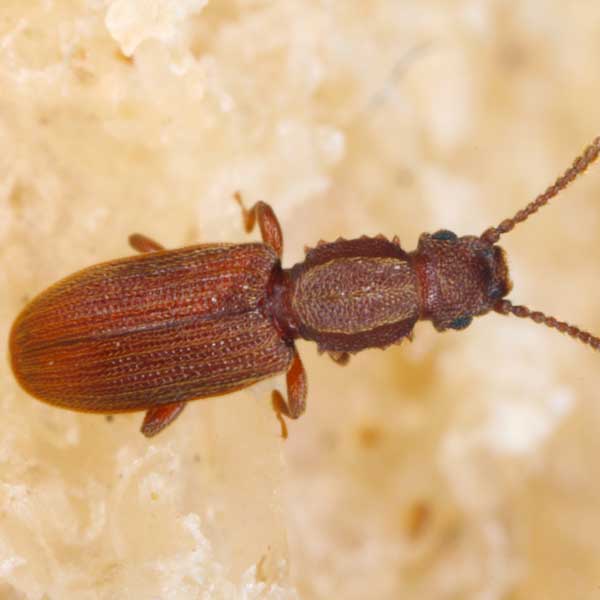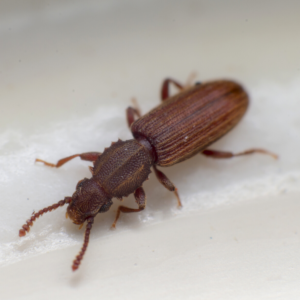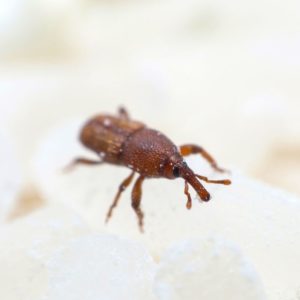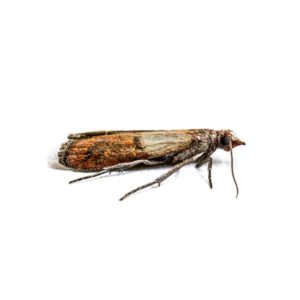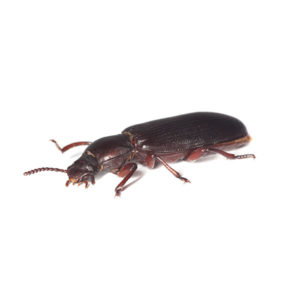Sawtoothed Grain Beetles in Northern Utah
The sawtoothed grain beetle is a common stored products pest found throughout the United States in homes, grocery stores, food warehouses, and grain storage facilities. Similar in appearance to the merchant grain beetle, the merchant grain beetle has the ability to fly, while the sawtoothed grain beetle does not. Adults find their way into stored grains, flour, sugar, nuts, and other dry material of plant origin through cracks and crevices of imperfectly sealed containers. They are incapable of attacking sound grain kernels and often occur in food previously infested by other stored product pests. Their flattened body allows them to easily penetrate broken kernels of grain and packaged materials. Not only do they contaminate food, they often cause mold problems due to moisture build-up.
Sawtoothed Grain Beetle Habitat
Sawtoothed grain beetles are commonly found in food manufacturing, storage, and retail facilities, as well as pantries in homes. This stored product pest feeds on bread, cereal, dry pasta, dried meats, candy, nuts, and other dry goods. A single female can lay up to 250 eggs within cracks of kernels of grain. As with other pantry insects, it is the larvae that do most of the damage, however, the adult is most commonly encountered. A typical discovery of a sawtoothed grain beetle infestation occurs when adult beetles are discovered crawling around a pantry area.
Sawtoothed Grain Beetle Behaviors, Threats or Dangers
Sawtoothed grain beetles are not known to carry or transmit any diseases to humans and do not bite or sting. They are nuisance pests and will contaminate and damage food that is stored in the home. Adults can readily enter sealed cardboard boxes and soft plastic packaging. Sawtoothed grain beetles typically enter homes in products purchased from grocery stores which are already infested with larvae or adults. The primary infestation usually originates at the manufacturing facility where the product was produced.
If you have sawtoothed grain beetles in your Northern Utah property, contact your local exterminators for help.

